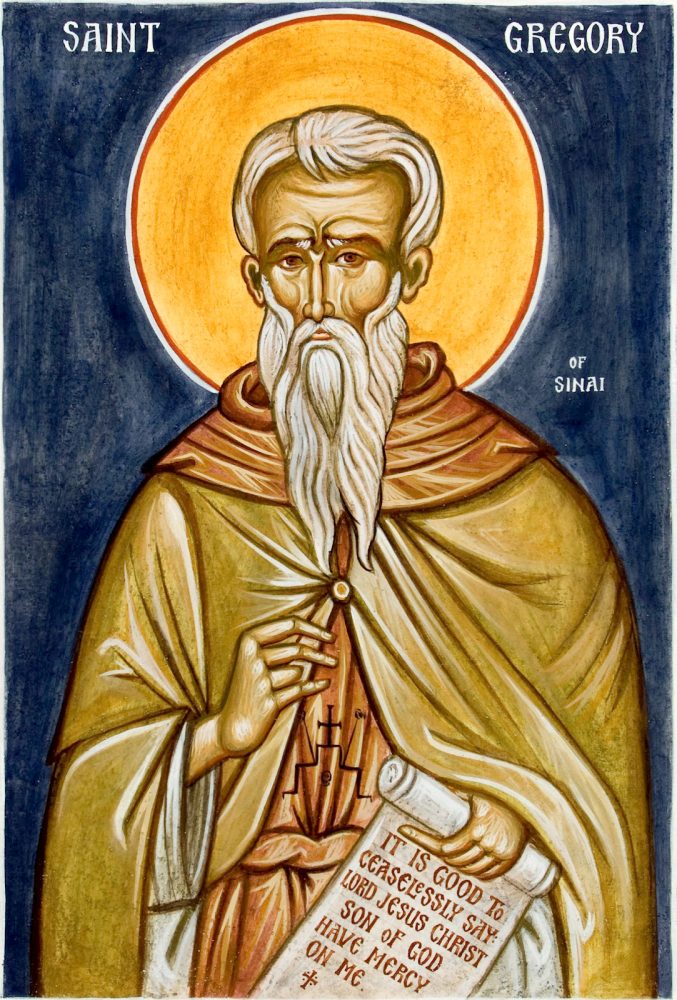Rev. José Mario O. Mandía
As we mentioned last time, Saint Basil had a friend who likewise became a great Church Father of the East: Gregory of Nazianzus. Gregory showed how learning, piety, and beauty are placed at the service of God.
Born into a noble family in Cappadocia around 329 AD, Gregory received a good education at home. Gregory says that his mother consecrated him to God while he was young. He was later educated in Caesarea in Cappadocia, then Caesarea in Palestine and Alexandria in Egypt. It was in Caesarea in Cappadocia where Gregory met Basil, but they became very good friends when both went to study in Athens.
Gregory, however, was quite different in character from Basil. The latter was rather outgoing, but Gregory preferred quiet and solitude: “he preferred quiet contemplation and the union of ascetic piety and literary culture to the splendor of an active life and ecclesiastical position” (Quasten III, p. 236). Nonetheless, he “is beyond doubt one of the greatest orators of Christian antiquity and surpasses his friend Basil in his command of the resources of Hellenistic rhetoric” (Quasten III, p. 236).
Regarding his preference for silence, Gregory himself wrote: “Nothing seems to me greater than this: to silence one’s senses, to emerge from the flesh of the world, to withdraw into oneself, no longer to be concerned with human things other than what is strictly necessary; to converse with oneself and with God, to lead a life that transcends the visible; to bear in one’s soul divine images, ever pure, not mingled with earthly or erroneous forms; truly to be a perfect mirror of God and of divine things, and to become so more and more, taking light from light…; to enjoy, in the present hope, the future good, and to converse with angels; to have already left the earth even while continuing to dwell on it, borne aloft by the spirit” (Orationes 2: 7; SC 247: 96).
His love of solitude led him to hesitate in accepting his priestly vocation. Pope Benedict XVI says, “As he confides in his autobiography (cf. Carmina [historica] 2: 1, 11, De Vita Sua 340-349; PG 37: 1053), he received priestly ordination with a certain reluctance for he knew that he would later have to be a Bishop, to look after others and their affairs, hence, could no longer be absorbed in pure meditation” (General Audience, 8 August 2007). Nonetheless, he obeyed.
In around 379, he led a small but faithful Catholic community in Constantinople. They were outnumbered by the Arians. It was here where he gave “five Theological Orations (Orationes 27-31; SC 250: 70-343) in the little Church of the Anastasis precisely in order to defend the Trinitarian faith and to make it intelligible.
“These discourses became famous because of the soundness of his doctrine and his ability to reason, which truly made clear that this was the divine logic. And the splendor of their form also makes them fascinating today.
“It was because of these orations that Gregory acquired the nickname: ‘The Theologian’” (Benedict XVI, General Audience, 8 August 2007). In these orations, Gregory not only draws from human reflection but also prayer and a holy life, immersing him in the beauty and glory of God. Here we see how one can put learning, piety and beauty at God’s service.
Aside from fighting the Arian heresy, he also addressed the heresy of Apollinaris, who claimed that Jesus Christ did not have a human mind, but only a divine one. Saint Gregory argued that without a human mind, Christ would not have been truly human. In becoming man, Jesus Christ opened for us to share in the divine nature. “Let us seek to be like Christ, because Christ also became like us: to become gods through him since he himself, through us, became a man. He took the worst upon himself to make us a gift of the best” (Orationes 1, 5: SC 247, 78).
Gregory also taught that Mary is truly Theotokos, mother of God, and she had the special privilege of being “purified in advance” (Orationes 38, 13: SC 358, 132). His teaching came many centuries before the Dogma of the Immaculate Conception was defined in 1854 by Pope Pius IX in the papal bull Ineffabilis Deus.
Gregory of Nazianzus also spoke about the need for solidarity and charity in action. “If you are healthy and rich, alleviate the need of whoever is sick and poor; if you have not fallen, go to the aid of whoever has fallen and lives in suffering; if you are glad, comfort whoever is sad; if you are fortunate, help whoever is smitten with misfortune. Give God proof of your gratitude for you are one who can benefit and not one who needs to be benefited…. Be rich not only in possessions but also in piety; not only in gold but in virtue, or rather, in virtue alone. Outdo your neighbor’s reputation by showing yourself to be kinder than all; make yourself God for the unfortunate, imitating God’s mercy” (Orationes 14, 26 De Pauperum Amore: PG 35, 892bc).
Pope Benedict continues: “While Gregory was taking part in the Second Ecumenical Council in 381, he was elected Bishop of Constantinople and presided over the Council; but he was challenged straightaway by strong opposition, to the point that the situation became untenable. These hostilities must have been unbearable to such a sensitive soul” (Benedict XVI, General Audience, 8 August 2007). This led to his resignation a few days later.
Returning to Nazianzus, he took charge of the Christian community there. He then retired in solitude in Arianzum, where he was born, and spent the rest of his life in study, prayer and mortification. It was in Arianzum where he died in 389 AD.


 Follow
Follow


